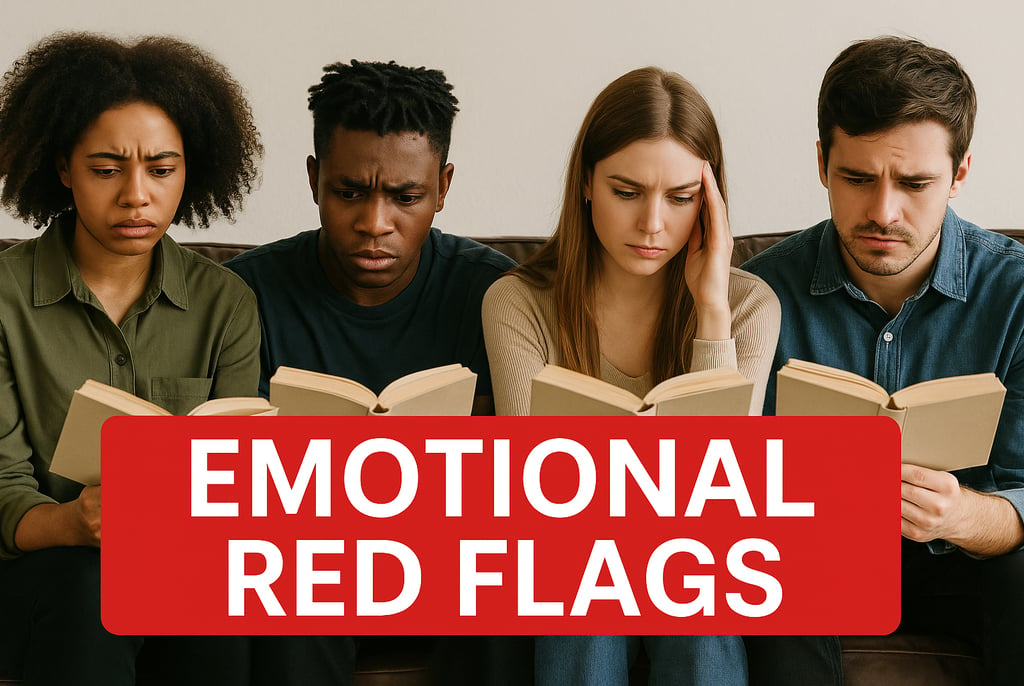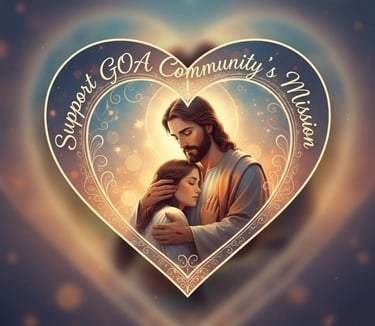Red Flags and Emotional Behavior: Understanding the Signs
The hidden emotional red flags that often go unnoticed in relationships and daily interactions. From uncontrolled anger to subtle manipulation, it reveals how these signs are not mere habits but deep indicators of wounds or character flaws. Readers will learn to recognize toxic patterns, set healthy boundaries, and protect their peace without falling into the trap of trying to “fix” others. A powerful guide to emotional wisdom, self-love, and discernment.
Anutanwa Kosisochukwu
8/29/20253 min read


Red Flags and Emotional Behavior: Understanding the Signs
In life and relationships, emotions often serve as a compass—they reveal wounds, intentions, and character in ways that words cannot fully conceal. Many times, we encounter people whose emotional patterns wave silent red flags. At first glance, these behaviors may seem like quirks or personality traits, but in truth, they are deeper signals—indicators of unresolved pain, immaturity, or, sometimes, a person’s true nature.
A healthy soul does not consistently generate discomfort, nor does it repeatedly drain the peace of those around it. When certain behaviors become patterns, they are not to be dismissed or romanticized; they are warnings. The difference between wisdom and regret is often found in whether we heed these signals or excuse them away.
Below are some emotional red flags that deserve close attention:
1. Uncontrolled Anger
When someone constantly lashes out over trivial issues, it is not simply about temperament or zodiac signs. It reveals deeper wounds—unresolved pain, suppressed resentment, or a lack of emotional maturity. Many who grew up without love or affirmation find themselves bitter, struggling to manage relationships. Yet unmanaged anger always burns bridges and destroys peace.
2. Excessive Jealousy
A little jealousy may look harmless—it can even appear as care. But when it becomes possessive and suffocating, it shifts into a dangerous form of insecurity. Genuine love liberates; it does not imprison. It trusts, even in absence, and allows freedom without fear.
3. Cold Silence and Emotional Withdrawal
Silence can be healing, but when used as a weapon, it becomes toxic. Emotional withdrawal in the face of conflict is not wisdom—it is immaturity. Issues that could be resolved through dialogue are allowed to grow into mountains of offense, leading to irrational decisions and broken connections.
4. Over-dependence on Others for Happiness
If someone cannot find joy within themselves and constantly demands that you “complete” them, this is not love but bondage. Emotional dependency drains both parties, leaving one enslaved to another’s moods. True companionship adds to one’s joy; it does not chain it.
5. Lack of Accountability
When people refuse to admit mistakes or always shift blame, they reveal a rigid heart unwilling to grow. No one is perfect, but humility opens the door to transformation. A proud spirit, however, is unteachable—and to walk with such a person is to embrace stagnation.
6. Manipulation Disguised as Care
Not all kindness is genuine. Some people mask control under the cloak of care. They guilt-trip you for saying no, twist situations to their advantage, and make you doubt your instincts. This is not love; it is manipulation—a slow erosion of your freedom and peace.
Beyond the Warning Signs
Red flags do not always mean a person is inherently “bad.” Often, they point to wounds—betrayal, rejection, abuse, or disappointment—that have shaped behavior. Yet one truth must be remembered: you are not a repair center for broken souls.
You can pray for someone, you can support them, but you cannot heal those unwilling to face their truth. Healing is a choice. Until a person decides to walk that path, what you excuse today as “just who they are” may one day become the very reason for your heartbreak.
Do not normalize dysfunction. Do not excuse toxic behavior. Do not gamble your peace with the hope that “he will change” or “she will adjust.” Believe what people show you. Red flags are not decorations—they are warnings.
If you truly love yourself, you will learn to recognize these signs, set healthy boundaries, and protect the sanctity of your joy. Emotional wisdom is not about condemning others; it is about discerning when to help, when to pray, and when to walk away.
Final Reflection
Every red flag is a window into a person’s emotional reality. Sometimes, it reveals the hardest truth—that love, respect, and peace cannot grow where wounds are denied. And so we remind ourselves with clarity:
Red Flags do not turn green.
Inspired by GOA Community Services
Presented by: Anutanwa Kosisochukwu


